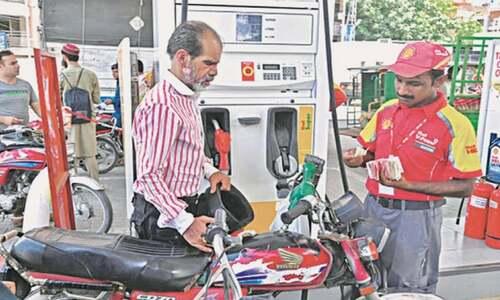KARACHI, July 2: Iraq has accepted the second shipload of 31,000 tons of wheat, replacing the earlier one, and presently the cargo is being unloaded at the Iraqi port, official sources said on Tuesday.
After winning a contract of 100,000 tons of wheat under UN programme of ‘oil for food’ for Baghdad, the Trading Corporation of Pakistan (TCP) had last year shipped the wheat but, on some ground, Iraq rejected two vessels of around 31,000 tons each.
After re-negotiating the contract, Baghdad agreed to allow TCP to replace the same quantity at an fob price of 214 euro per ton, the sources said.
However, the first vessel of around 31,000 tons, replacing last year’s rejected consignment shipped early last month, was also rejected by Baghdad, and the TCP had to sell it to a private party of Dubai at c&f price of $115 per ton.
The Iraqi wheat market is not only fairly large in size but it also gives good price for wheat. Entering the Iraqi wheat market was a major breakthrough for Pakistan. Traditionally, Iraq had been importing from developed countries like Australia, Canada and the US.
The chairman, TCP, Syed Masood Alam Rizvi told Dawn that after deducting 17 euro per ton in freight charges and around 50 euro inland transportation cost taken by Iraqi government under the agreement in advance, the Trading Corporation of Pakistan would fetch around 147 euro per ton or $140 per ton.
Though officially no decision was made with regard to the rejected vessels, Rizvi said, the TCP would like to complete the contract by sending another vessel of equal load.
“It is encouraging that our second vessel has been accepted, and TCP could easily meet the required quality for replacing the earlier wheat consignment,” the TCP chairman said.
The country has already exported over 300,000 tons of wheat to some African as well as Middle Eastern countries, and is gradually trying to have a permanent place on the world wheat map.
Rizvi said for ensuring quality wheat for exports the government has already initiated several projects, including setting up of silos as well as introducing mechanised system for cleaning wheat.
He said that many Middle Eastern countries had been traditionally importing wheat from developed countries who have advance technologies, whereas Pakistan has just made its debut and would need some time to develop the required know-how as well as infrastructure.










































Dear visitor, the comments section is undergoing an overhaul and will return soon.